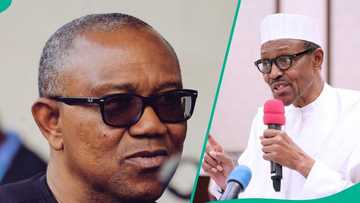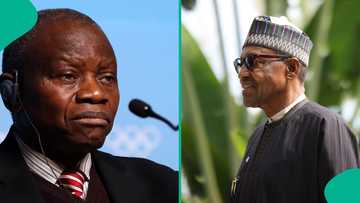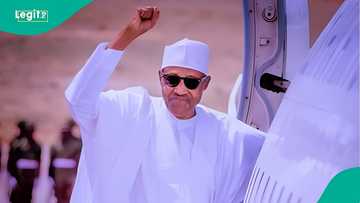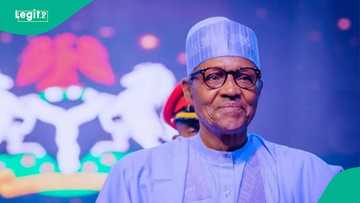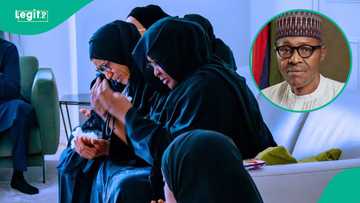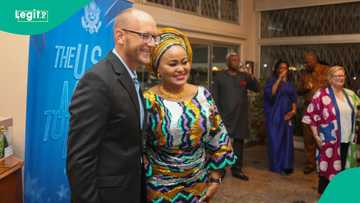Buhari’s Wealth and Money in His Bank Account as Declared in His First and Second Terms Released
- President Muhammadu Buhari declared just $150,000 in personal wealth upon assuming office in 2015, sparking widespread commentary across Nigeria
- His second-term asset submission in 2019 reflected no significant changes, reinforcing his image as a frugal leader in a country like Nigeria
- Vice-President Yemi Osinbajo, by contrast, revealed a considerably larger portfolio of properties and finances, offering a glimpse into the wealth disparities within Nigeria’s top leadership
Don't miss out! Join Legit.ng's Sports News channel on WhatsApp now!
In 2015, Muhammadu Buhari publicly declared that he held $150,000 (£100,000) in his personal bank account, marking a symbolic start to his presidency’s anti-corruption stance.
The BBC’s Will Ross noted the sum amounted to “chicken change” for Nigeria’s political elite, but would be considered a substantial fortune by most citizens in Africa’s largest economy.

Source: Twitter
First opposition candidate to win national election
Buhari, a former military ruler and ex-minister of petroleum, made history as the first opposition candidate to win Nigeria’s national election.
His victory in March 2015 was widely credited to his pledge to tackle the twin challenges of corruption and insecurity. At the time, Buhari stated that an estimated $150bn (£100bn) had gone missing from the nation’s coffers, highlighting the scale of alleged financial mismanagement.
Declared assets
The President’s asset declaration from 2015 included five homes and two mud houses located in Kaduna, Daura, Kano and Abuja. He also listed farms, an orchard and a ranch with 270 cows, along with 25 sheep, five horses, and various birds.
Additional holdings comprised two undeveloped plots of land, shares in Berger Paints, Union Bank, and Skye Bank, and a Union Bank account with N30m. Buhari claimed to have purchased two cars from his savings, while other vehicles had been gifted or supplied by the federal government, including after a Boko Haram attack damaged his jeep in 2014.
Buhari’s asset declaration during second term
Ahead of his second inauguration in 2019, President Buhari submitted his asset declaration forms to the Code of Conduct Bureau, fulfilling a constitutional requirement.
The Presidency, through Garba Shehu, announced that the completed forms were delivered by Senior Special Assistant Sarki Abba, and had been signed and sworn to before a judge of the Abuja High Court.
No significant changes in wealth reported
Buhari reportedly made no additions to his portfolio compared to 2015. “There are no new houses, no new bank accounts at home and abroad and there are no new shares acquired,” the Presidency stated.
The Code of Conduct Bureau’s chairman, Professor Mohammed Isa, commended Buhari for setting a good example by abiding by asset declaration laws.
Vice-President Yemi Osinbajo was revealed to be considerably wealthier than the president. According to Shehu, Osinbajo held $1.4m (£900,000) across bank accounts. His declaration also included multiple properties: a four-bedroom home, a three-bedroom flat, a two-bedroom flat, and a mortgaged two-bedroom residence in Bedford, UK.
The former Lagos State commissioner of justice had a distinguished career before assuming national office.
Public declarations and legal mandates
The Presidency confirmed that both leaders complied with legal mandates to declare assets before leaving office. While full documentation was submitted to the Code of Conduct Bureau, the Presidency stated that public access would follow post-verification.
Late President Umaru Yar’Adua remains the pioneer of this transparency tradition, having declared a net worth of $5m (£3.5m) in 2007.
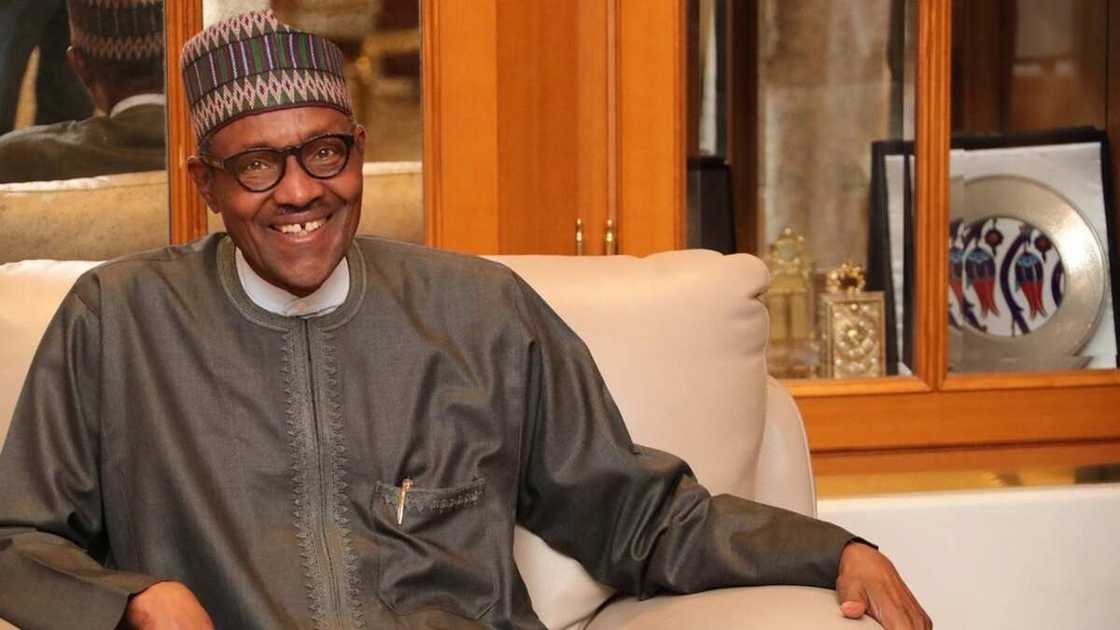
Source: Twitter
Illness exposed Buhari’s contradictions - Historian
A historian and political scientist, Dr. Olasupo Olakunle Thompson, has said that former President Muhammadu Buhari’s illness during his presidency revealed contradictions between his projected modest lifestyle and his actions in office.
“Sickness would be the first factor that exposed all these mysteries about the man, Muhammadu Buhari,” he told Legit.ng.
Dr. Thompson noted that many Nigerians, particularly the youth, began to feel misled:
“With this, the people, mostly then youths, felt they had been conned of the real Buhari of the 1980s who was prudent, austere, conservative, and pan‑African in nature.”
“His spokesperson had to start making excuses that he never trusted Nigerian doctors and that he had been using this set of doctors since his days as a military officer, among others, when Buhari himself said he had never been that sick. All these inconsistencies further exposed this mystic.”
Dr. Thompson pointed to public admissions by Buhari’s aides as revealing:
“Not recently, a spokesperson, Garba Shehu, said they had to lie that rodents invaded the Villa to cover Buhari’s sickness. You can imagine this from a religious person who donates to his faith and goes to perform Hajj. It shows that they prefer to lie because of food (job) than to uphold the tenets of Islam.”
He also described a contradiction in portraying Buhari as someone who lived simply:
“Again, he said Buhari was eating pap and beans because of his love for Nigeria. He puts it: Most of the things he ate were very basic foods that are recognizable and associated with, and consumed by, the lower strata of Nigerian society — tuwo, pap, akara, beans, wheat, plenty of salads, poultry, and mutton.”
“This again is another contradiction, as it could be for health reasons, as we heard at a time that doctors asked him to sleep more.”
Why former president Buhari was arrested
Legit.ng earlier reported that Fresh attention has been drawn to the arrest and prolonged imprisonment of former Nigerian President Muhammadu Buhari following the collapse of his military regime in 1985.
Historical sources including StartArchiving have resurfaced, detailing Buhari’s detention which spanned over three years after his government was ousted in a coup.
The Buhari-led administration, in power for 20 months, was widely viewed at the time as one of the most authoritarian Nigeria had experienced.
Editorial assistant Ololade Olatimehin provided exclusive commentary from a historian for this report.
Source: Legit.ng


